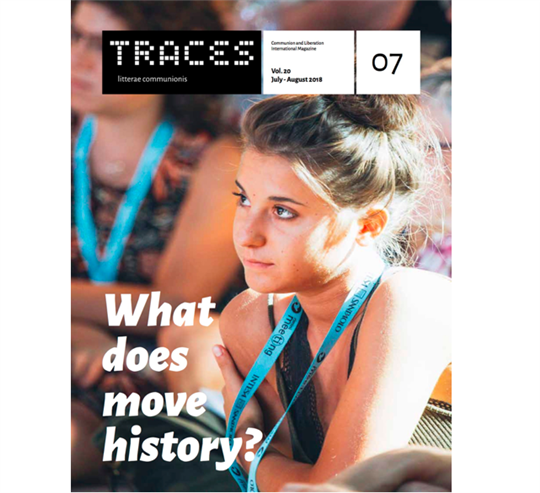
Traces N.7, July/August 2018
Minute by MinuteWhat makes us happy? What can truly fill the human heart, deep down? This may seem like a hackneyed or even insignificant question compared to other issues that at first sight would seem much bigger, such as politics or the economy. And yet it is a crucial question, the only one that truly matters, that is worthwhile asking yourself and others, ceaselessly, because our life is decided by the answer, day by day, minute by minute.
There is a line from the Gospel that Fr. Giussani used to repeat often, beginning in the early days of the life of the Movement: “What profit would there be for one to gain the whole world and forfeit his life? Or what can one give in exchange for his life?” (Mt. 16:26). It is a threshold question, such a clear criterion that we know well what happens in the rare times we take it seriously. But he said something else, spoken to a group of CL leaders in the early 1990s, of similar import that, in judging history, separates the essential from the superfluous. “The great problem of the world today is no longer an interrogative theorization, but an existential question. Not: ‘Who is right?’ but: ‘How is it possible to live?’” In other words, the question is: What enables the heart to be glad, the lungs to breathe, a person to get up again and walk in the midst of the toils of life? In the end, this is our urgent need, not to formulate more acute analyses and theories that solve the drama of history, but instead to live.
The upcoming Meeting of Rimini will speak about these things, about “the forces that move history” and about what fills our heart. If we forget about the question of what enables the heart to be glad, if in the drive to seek solutions to the great problems that surround us–the tragedy of migrants, the crumbling of Europe, the suffering of the innocent, the thousands of injustices we set aside that apparently insignificant question, we will not make much progress. In all probability, we will be destined to add errors on top of errors. History tells us this, even recent history (it is no coincidence that the title of this year’s Meeting is a line that was said soon after 1968). But if we go in search of Him who truly fills the heart, if we search for facts, testimonies, and circumstances that show this fullness–show that it is real, that it happens, and is therefore possible–the outlook suddenly changes.
The pages you will read here follow the path of this search, from the themes of the Meeting to the story of families waiting for the Pope in Dublin (in a land where faith seems to have been defeated by history, but also where a different reality is emerging around those who live it), to Tilburg in Holland, where Fr. Michiel Peeters opens the doors of his chaplaincy to students from all over the world. These testimonies and facts are the buds of a different society because history moves when women and men change when I change.